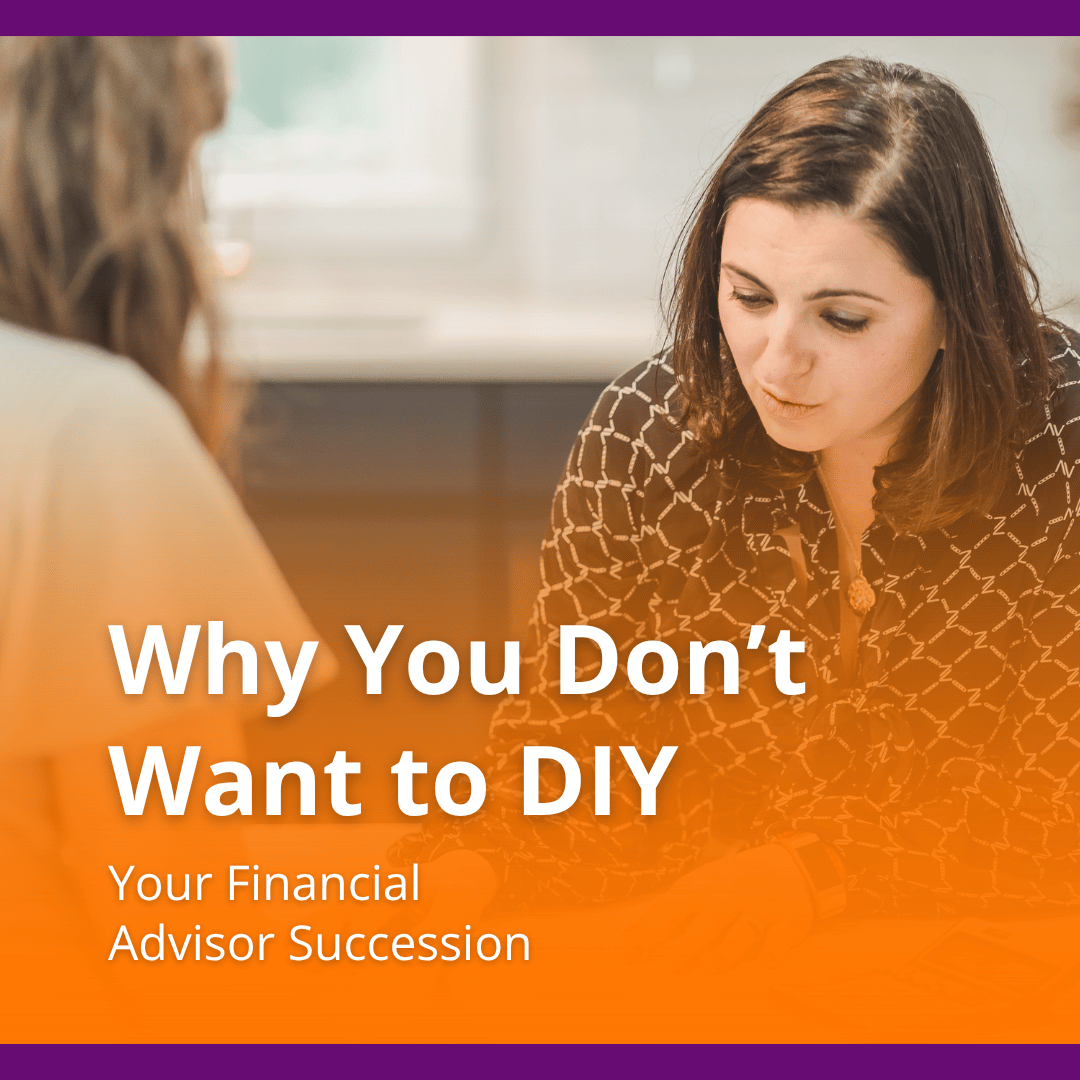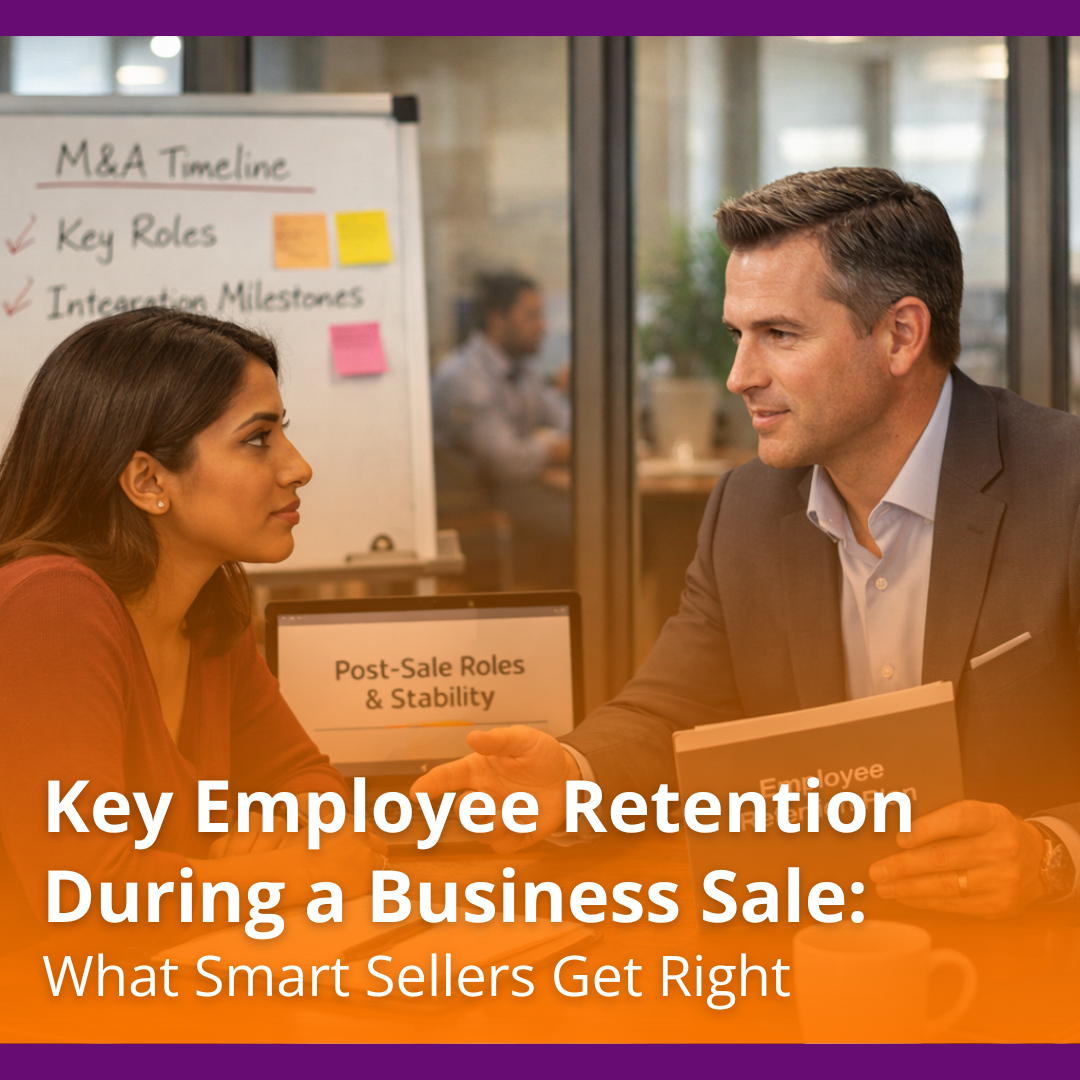How to Know If You’re Emotionally Ready to Sell Your Advisory Practice
You have pictured the day you sell your advisory practice. The deal closes. The pressure lifts.
Comprehensive, data-driven valuations and comparative equity analyses to accurately price your practice, establish market benchmarks, and support informed decision-making.
Comprehensive M&A guidance encompassing deal structuring, negotiation strategies, market listings, and transaction closings.
Comprehensive systems, targeted coaching, and in-depth assessments designed to optimize operational efficiency and enhance advisory team effectiveness.
Strengthen continuity through the implementation of formal continuity agreements, the establishment of legal entities, execution of enforceable legal contracts, and securing appropriate capital resources.
2 min read
 Nicholas Tucker
June 30, 2025
Nicholas Tucker
June 30, 2025

Many advisors find themselves faced with the temptation to handle their internal succession or external practice sale on their own. Whether it’s because they know and trust their successor or they are trying to save on third-party fees, the perceived benefits of a DIY practice sale are overshadowed by the costs that come with inexperience. Truth is you don’t know what you don’t know. The internet if full of conflicting information and relying on that information could blind you to unexpected risks and challenges that could cost you dearly.
There are a number of reasons why you shouldn’t try to handle your practice sale on your own.
Sellers who DIY their practice sale are more likely to sell for less than it’s worth. This is because they have not taken the time to get a professional valuation, nor do they have an experienced consultant advocating on their behalf. This is especially true in uncertain markets, like the current pandemic, when many “experts” are advocating that practices be sold at a discount to reflect the current, and more importantly, temporary state of the market. Sellers need someone advocating on their behalf so that they can fully realize the equity they have built in their practice. It should reflect not only where the practice is now, but where it will be in the near future.
Too often, DIY practice sales fail to develop a sound and complete transition plan. This results in a confusing and dissatisfying experience for clients. This often leads to higher attrition rates and an unhappy buyer who may or may not seek retribution.
Because advisors are not experienced sellers, they don’t know what challenges and risks exist and how to properly protect themselves. This is also true for buyers, who don’t properly build claw backs and other safeguards to protect the value of the practice relative to any loans incurred in order to purchase the practice. An experienced consultant not only knows what challenges exist, they can also help both parties identify opportunities and put safeguards in place to ensure a good deal for everyone involved.
When it comes to your practice sale, there are no do overs. It’s not something you want to approach lightly. Working with an experienced successions team ensures that you not only get the best deal, it also ensures a smoother transition for your clients and your team. You only get one chance to sell your practice. Its critical to do it right.

Nicholas “Nick” Tucker is Visionary & Co-Owner of Advisor Legacy with more than two decades in the financial services industry. Nick partners with advisors during successions and acquisitions to architect client communication plans, align service models, and build the operational systems that sustain growth after a deal closes. His writing focuses on practical playbooks for client handoffs, stakeholder messaging, onboarding workflows, and KPI tracking that protects revenue and experience through change. He brings a systems-first approach so advisors can execute transitions with confidence and keep teams, clients, and partners aligned.
Receive timely articles, tip sheets, events, and more right in your inbox.

You have pictured the day you sell your advisory practice. The deal closes. The pressure lifts.

Selling a company is often the largest financial event of a business owner’s life. Yet most exit conversations still revolve around valuation and...

Are you preparing to sell your business with a team you want to keep intact? Then you’re already thinking ahead. The moment a sale is in motion, your...